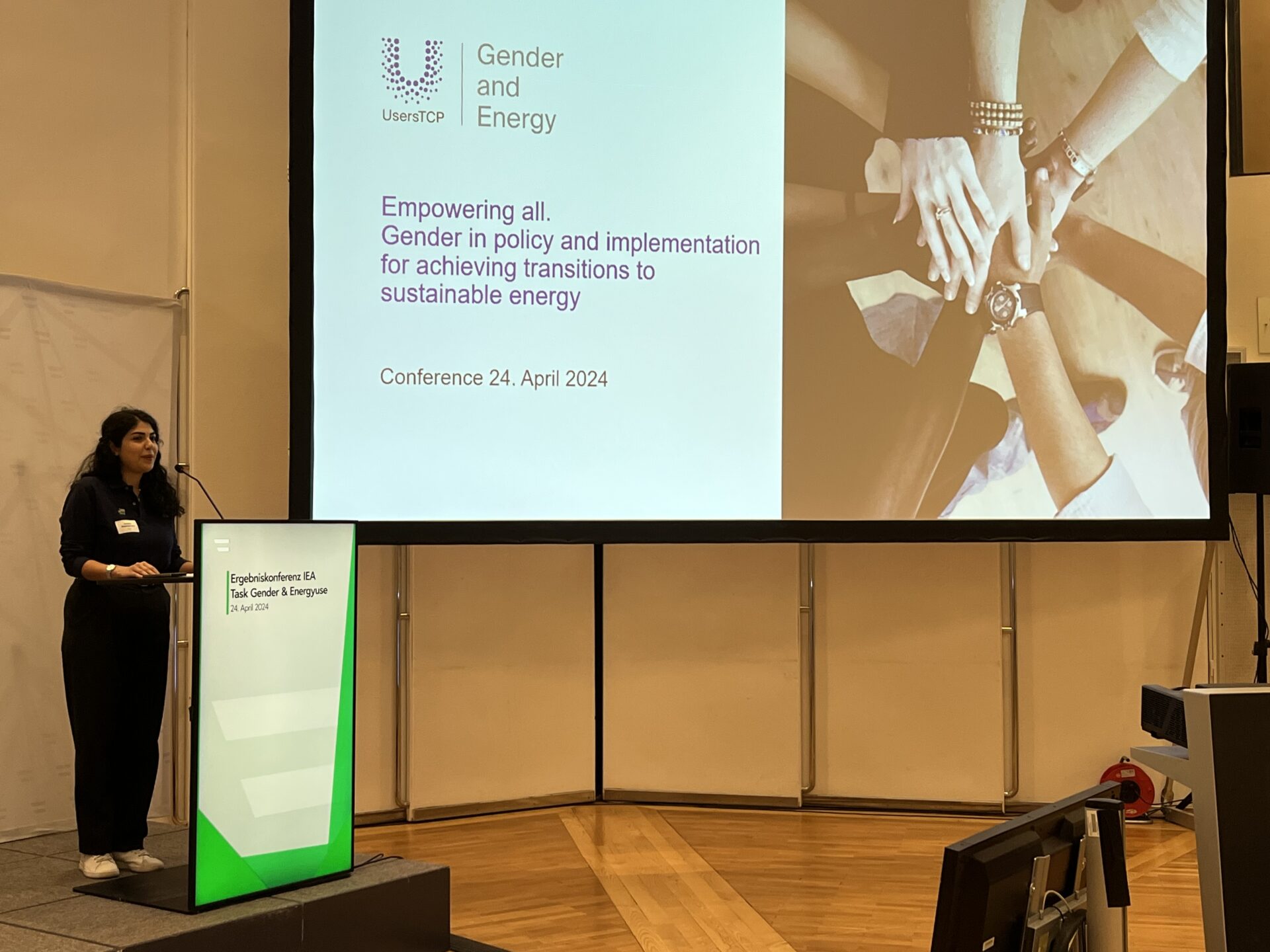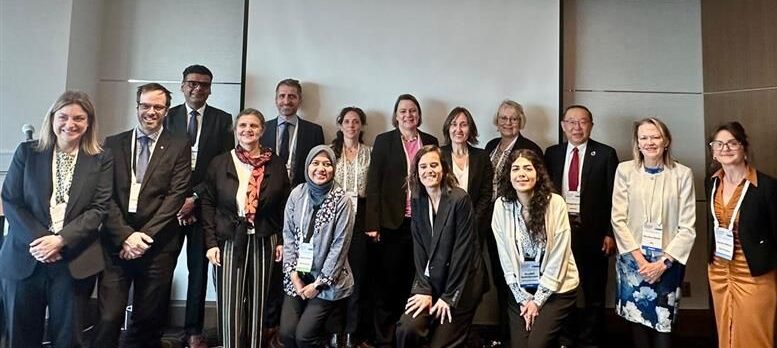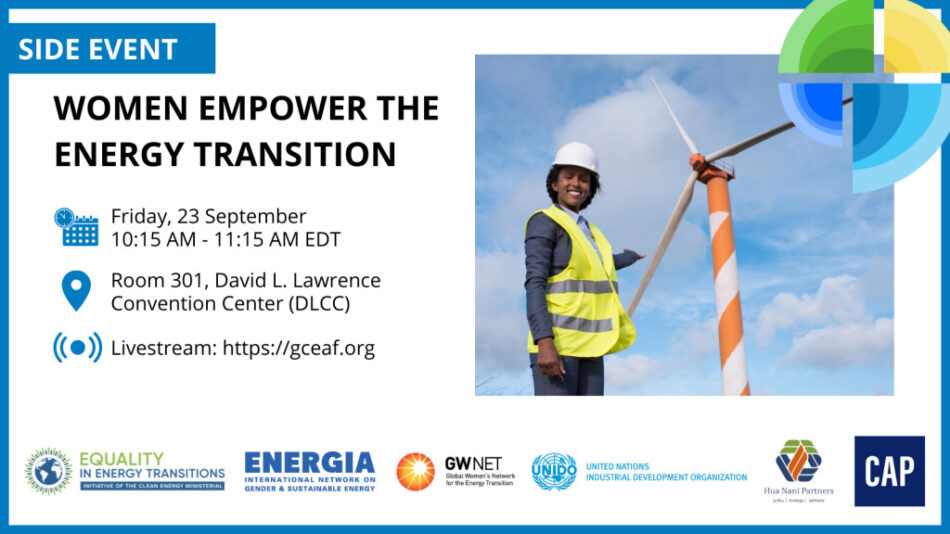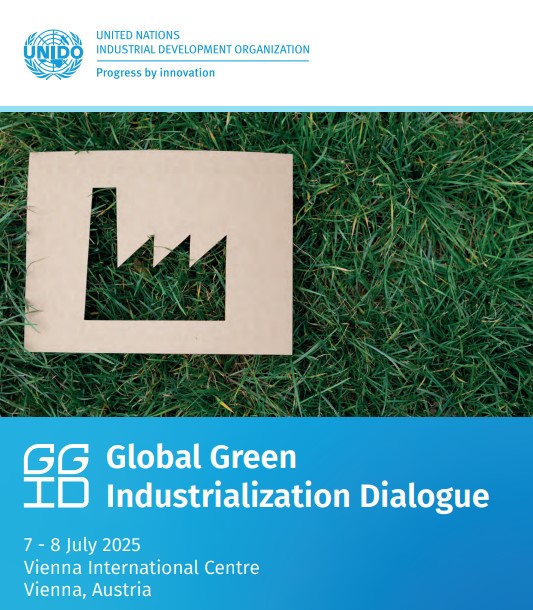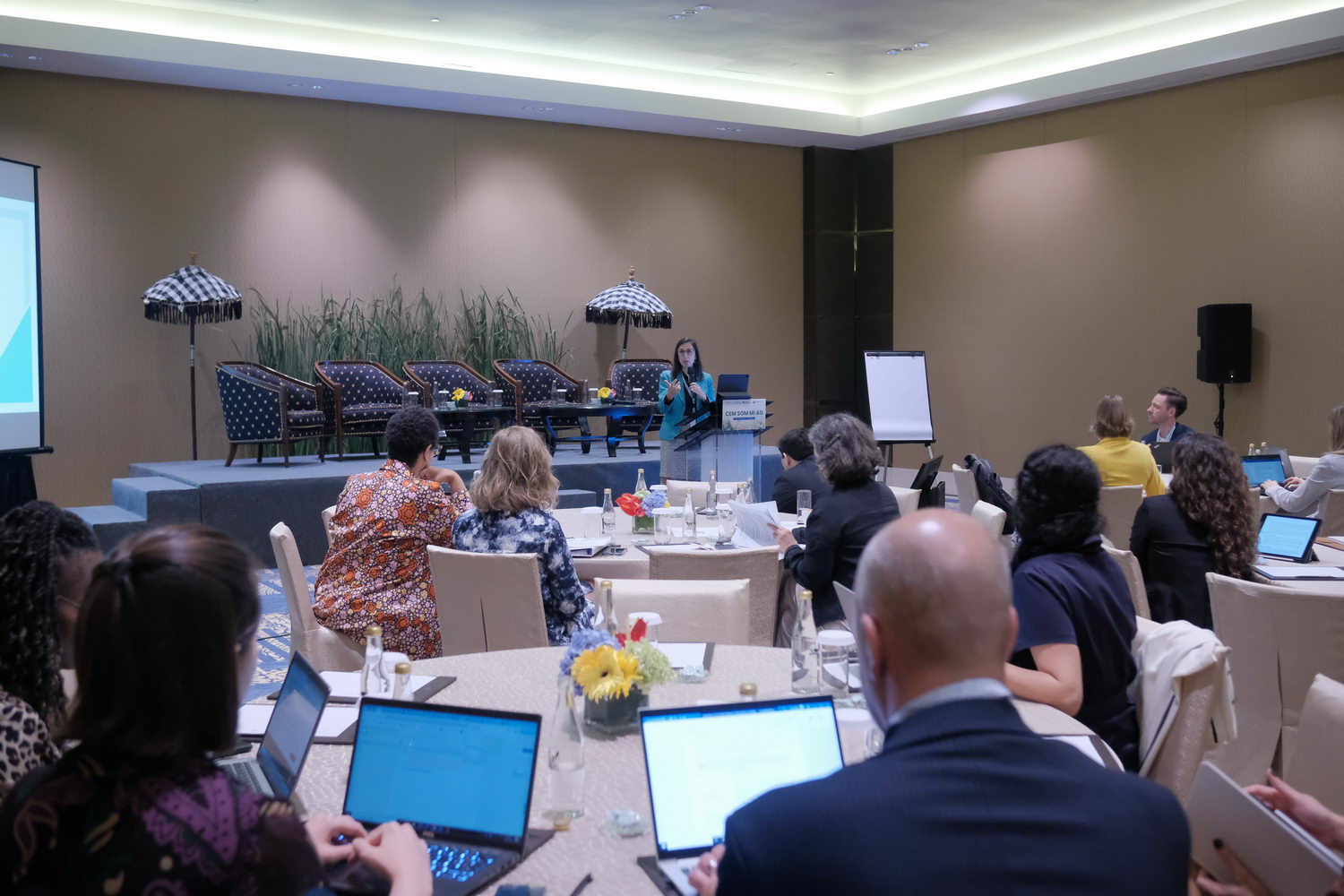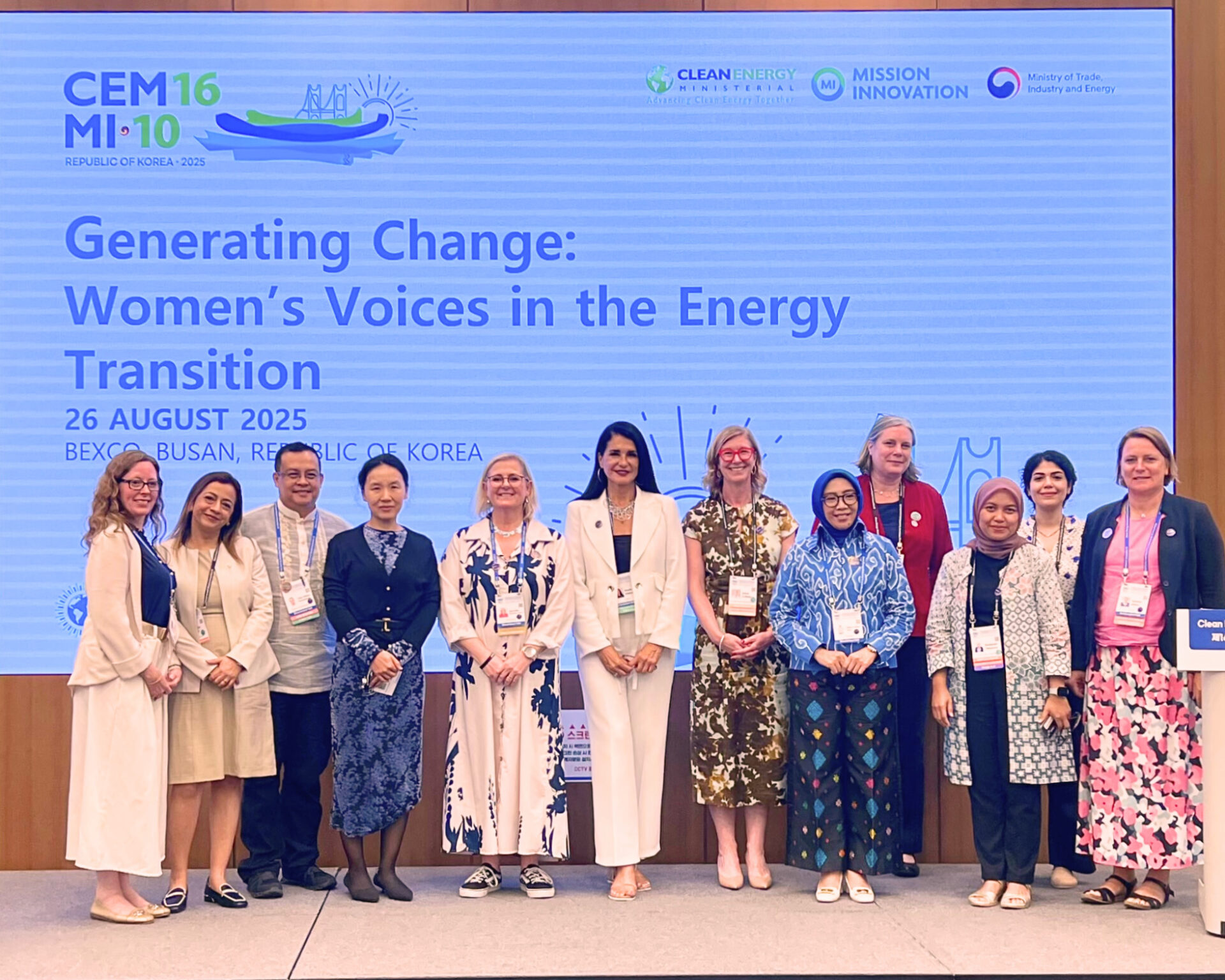
On 26 August 2025, global leaders, policymakers, and advocates gathered at the 16th Clean Energy Ministerial (CEM16) and the 10th Mission Innovation Ministerial (MI-10) in Busan, Republic of Korea, for the high-level side event “Generating Change: Women’s Voices in the Energy Transition”, co-organized by the Equality in Energy Transitions Initiative and the United Nations Economic and Social Commission for Asia and the Pacific (UN ESCAP). The session spotlighted how advancing gender equality is not only a matter of justice but
also a strategic imperative for a just, inclusive, and sustainable energy future.
The event was moderated by Ms. Reena Suri, Executive Director of the India Smart Grid Forum (ISGF), who welcomed participants and underscored the urgency of addressing gender gaps in energy. She also shared powerful examples from India, including initiatives that mobilize women in rural areas for skilling in solar and clean energy, and ISGF’s own training programs where more than a quarter of trainees are women. These stories highlighted how women’s leadership at the community level is transforming the clean energy landscape.
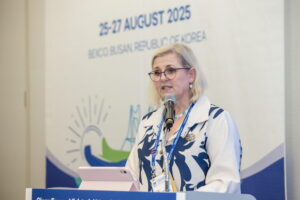
In her opening address, Ms. Samantha Graham-Maré, Deputy Minister of Electricity and Energy of the Republic of South Africa, emphasized her country’s prioritization of equality in energy transitions, ranging from equitable access to clean cooking solutions to enabling women’s participation in the energy workforce and skilling. She stressed the need for systematic change to make transitions inclusive and just, while announcing South Africa’s commitment to join the Equal by 30 campaign, the Equality Initiative’s global campaign advancing gender equality in the clean energy sector.
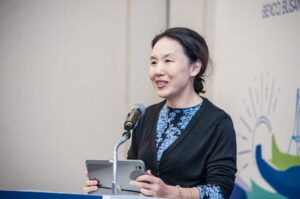
Ms. Lin Yang, Deputy Executive Secretary for Programme at the United Nations ESCAP, then set the scene, drawing on the newly launched background paper Gender and Energy: Advancing Gender Equality in Support of a Sustainable Energy Future. This paper is published by UN ESCAP in collaboration with the Equality Initiative. Ms. Yang highlighted key findings, including persistent gender gaps in leadership and STEM, the disproportionate energy poverty burden borne by women, and the urgent need for gender-disaggregated data. ESCAP’s recommendations called for gender-responsive policies, investment in clean cooking, affirmative action in leadership, and a stronger pipeline of women entrepreneurs in clean energy.
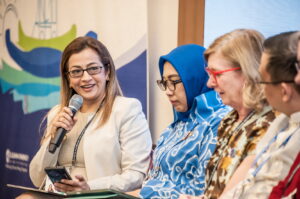
The panel discussion that followed brought together diverse voices from government, academia, philanthropy, and regulatory bodies. Professor Dr. Eniya Listiani Dewi, Director General of New Renewable Energy and Energy Conservation in Indonesia, shared the stark challenge of electrifying 17,000 islands. She recounted a visit to a remote village where a young woman taught children by candlelight, underscoring the urgency of universal access. She stressed the importance of local women champions in operating micro-hydro systems, backed by proper training and education. She also highlighted Indonesia’s National Action Plan on Gender and Climate Change and the role of women-led cooperatives in building local enterprises. Her powerful message, “women change civilization”, resonated so strongly with all panelists and participants, becoming a unifying theme of the evening.
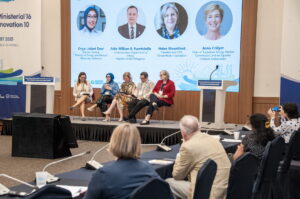
Mr. Felix William Buquid Fuentebella, Undersecretary at the Department of Energy of the Philippines, emphasized the deep cultural roots of women’s leadership in his country, from mothers as the first “teachers” of energy conservation to women leaders shaping national energy policy. He shared that legislation and initiatives such as competency mapping, training, and financing support for women-led energy enterprises are ensuring that women remain central to the country’s transition. He also recalled the leadership of women in his own family and government history, underscoring how women’s voices have always been part of the Philippines’ energy conservation and transition journey.
Ms. Helen Mountford, President and CEO of the ClimateWorks Foundation, reminded the audience that women are on the frontlines of climate impacts yet remain underrepresented in decision-making. She reflected on stark statistics: fewer than 20 percent of energy ministers and only 11 percent of climate negotiators are women. She highlighted philanthropic initiatives that strengthen women’s voices in climate negotiations, support women-led cooling solutions in India, and create leadership pipelines across G20 presidencies. “If more women were energy ministers and negotiators,” she reflected, “our energy future could look very different.” She, too, embraced the phrase “women change civilization,” linking it to the transformative role philanthropy can play.
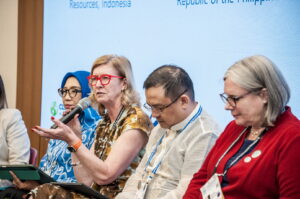
Ms. Anna Collyer, Chair of the Australian Energy Market Commission and Ambassador for the Equality in Energy Transitions Initiative, expanded on how systemic and cultural change are critical to addressing women’s underrepresentation in leadership. She stressed that women’s participation is not just the right thing to do but essential to achieving the energy transition. Ms. Collyer highlighted three key areas where women’s involvement is fundamental: workforce participation through inclusive recruitment, skilling, and retention policies; policy and governance, where women’s leadership must shape reforms and decision-making; and energy access, where women should be recognized not only as end-users but also as leaders in delivering community-based solutions. She emphasized that the transition to renewables offers a unique opportunity, as these industries are already showing higher levels of female participation compared to traditional energy sectors, and this momentum must be nurtured.
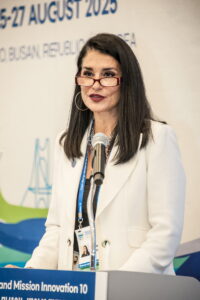
Delivering the final remarks, Ms. Paula Vieira, Director General of Environmental Policy at Transport Canada, drew from her own experiences navigating the mobility sector as a woman. She launched the Equal by 30 Outreach Guide to help partners expand advocacy and proudly welcomed the India Smart Grid Forum as the newest signatory. She also congratulated South Africa for joining the campaign, underscoring how global collaboration strengthens progress.
Finally, Mr. Jean-François Gagné, Head of the CEM Secretariat, closed the event by reaffirming the Clean Energy Ministerial’s role as a platform for advancing gender equality, from improving access to energy to addressing workforce skills gaps.
The discussions throughout the session made clear that women are not just beneficiaries of clean energy transitions but essential drivers of them. From community micro-grids to ministerial offices, their leadership ensures that the path to a low-carbon future is equitable, resilient, and sustainable. The message from Generating Change was unequivocal: achieving gender equality in energy is not a side issue, it is central to achieving climate and development goals. Indeed, as the panelists affirmed with one voice, women change civilization.

